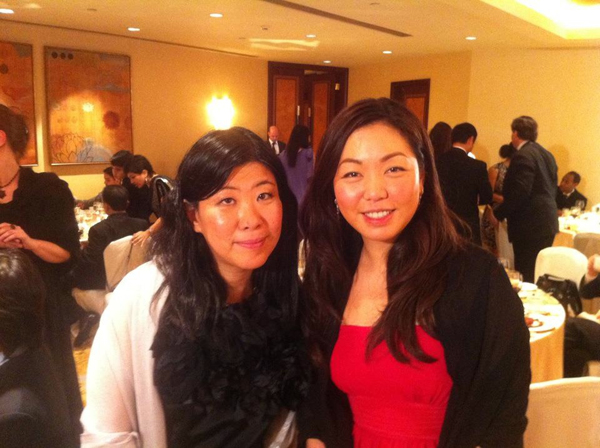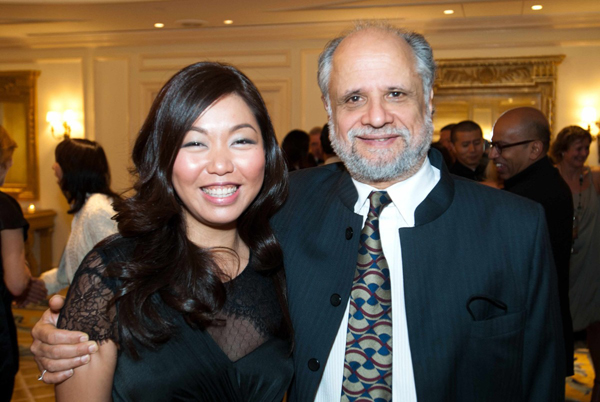“The Man Asian Literary Prize”, by Marina Ma Vogt
Marina Ma Vogt graduated with a BA in 2002 and MPhil in 2004. She is now Manager of the Man Asian Literary Prize.

The invitation to write this article came almost a year ago, just before my wedding. Perhaps I am, like you, someone very attached to the School of English at HKU, yet life has taken me very far from it. Part of the truth is that I always plan to visit campus more often, see old friends and do something for the university, but as a woman working in Central there seems to be never enough time. The other part of the truth is that I really don’t know where to begin sharing my experiences and memories of HKU, a place where I spent a good 11 years of my life – but I can tell you where it has taken me now.
I now work as Prize Manager for the Man Asian Literary Prize – a sister prize to the famous Man Booker and a unique prize founded to promote the best of Asian writing. When the job first landed on my lap, it appeared to me such a dauntingly grand mission. The prize had just undergone a major transformation from being awarded to unpublished novels to published ones, which meant Asian writers like Amitav Ghosh, Tan Twan Eng, Su Tong, Banana Yoshimoto, Haruki Murakami and many others were now within the purview. Some of these writers I had read, met and hosted at HKU, others I had read but never even dreamt of meeting in the real world. The thought of overseeing the operations of this grand mission – an annual literary prize with the aim of bringing Asian writing to the world – in a one-woman office with the support of seven good-natured and encouraging directors, is still daunting yet strangely perfect for me.

Having spent almost all of my time at HKU studying literature and organizing events, the combination of literature and event management in this job is perfect for me. During the last three years with the Prize, I have worked closely with numerous writers, translators, literary agents, publishers, journalists, arts administrators and academics all with the aim of promoting books and their writers. In this short time, the Prize is now routinely called “Asia’s most prestigious literary award” in the media, lauded as having the “power to propel unknown writers into the limelight” and acknowledged for its efforts in “the growing recognition of Asian literature”. Interviews, reports, and features of the Prize have appeared in the South China Morning Post, Wall Street Journal, Straits Times, New York Times, BBC World News and hundreds of others. Publishers and bookstores have also confirmed that book sales have increased because of the Prize. This is not just the achievement of a literature graduate in a one-woman office, but the result of a belief and dedication to a grand mission made possible by a small group of like-minded people.

I have also had the pleasure of training current HKU School of English students who work for the Prize as interns. They are mainly Language and Communication majors studying a second language with an interest in arts administration or event management. For many of those who intern with the Prize during what I call the “glamorous season”, their hard work is rewarded by an action-packed glitzy evening rubbing shoulders with superstars of the Asian literary world. The interns have the important responsibility of rushing them to their media interviews. Every one of the student interns who works for the Prize during literary events and award ceremonies has this look of awe, perhaps just like I did when I first took on this job. Being in my position now, I hope to interest more and more HKU School of English graduates in these kinds of dauntingly grand missions in the arts field, which from experience, I can tell you, is more than rewarding.
Marina Ma Vogt
Visit the Man Asian Literary Prize at http://www.manasianliteraryprize.org/.

Our apologies, you must be logged in to post a comment.